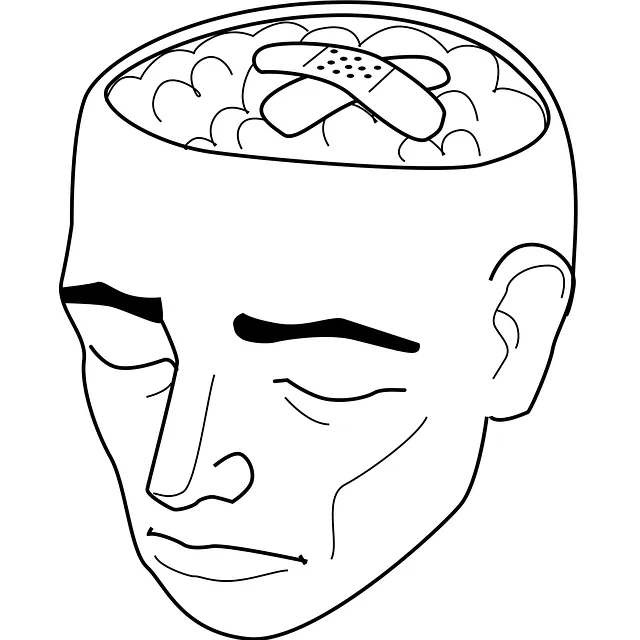Coping skills are vital for managing stress, anxiety, and preventing depression. Lakewood Kaiser Permanente (LKP) offers accessible tools like deep breathing exercises and mindfulness practices through their mental health number to address triggers and promote peaceful solutions. Understanding personal stress triggers is key; identifying them through detailed records helps develop targeted interventions. LKP's services emphasize strategies such as setting boundaries, time management, and emotional regulation, enhancing mood and preventing burnout. Mindfulness meditation, regular exercise, and peer support are recommended for sustainable well-being in demanding professions like healthcare. The integration of relaxation techniques, cultural sensitivity, and supportive communities fosters emotional intelligence and mental wellness through LKP's comprehensive resources.
Coping skills are essential tools for navigating life’s challenges. This guide explores effective strategies to enhance resilience and well-being, empowering individuals to manage stress. We delve into understanding the significance of coping skills and identifying personal stressors. Learn practical techniques, from mindfulness practices to building a supportive network, inspired by Lakewood Kaiser Permanente’s mental health resources. Discover how these strategies can foster sustained emotional balance and overall health. Contact Lakewood Kaiser Permanente for more support: [Insert Mental Health Resources Number].
- Understanding Coping Skills and Their Importance
- Identifying Personal Stressors and Triggers
- Developing Effective Coping Strategies
- Integrating Mindfulness and Relaxation Techniques
- Building a Support Network for Sustained Well-being (with a focus on Lakewood Kaiser Permanente mental health resources)
Understanding Coping Skills and Their Importance

Coping skills are the strategies we use to navigate life’s challenges and maintain our well-being. They play a pivotal role in managing stress, anxiety, and even preventing depression. Understanding and developing effective coping mechanisms is essential, especially for those seeking support through resources like the Lakewood Kaiser Permanente mental health number. These skills enable individuals to respond to difficult situations adaptively rather than reacting impulsively. By learning and practicing coping strategies, one can enhance their resilience and overall mental health.
The significance of coping skills becomes evident when considering common issues like anxiety relief and conflict resolution techniques. They provide tools to address triggers, manage emotions, and find peaceful solutions. For instance, deep breathing exercises and mindfulness practices are simple yet powerful techniques accessible through resources like the Lakewood Kaiser Permanente hotline, helping individuals instantly calm their minds and gain perspective during stressful moments.
Identifying Personal Stressors and Triggers

Understanding what triggers your stress is a crucial step in developing effective coping skills. It’s akin to identifying a unique fingerprint that identifies specific stressors unique to you. At Lakewood Kaiser Permanente, their mental health services encourage individuals to keep detailed records of situations or events that prompt heightened anxiety, anger, or depression. This introspective practice can reveal patterns and recurring themes, allowing for more targeted interventions. By recognizing these personal stressors, whether they’re related to work, relationships, financial worries, or health issues, you gain valuable insight into your emotional landscape.
This awareness is the foundation upon which you can build robust coping strategies. For instance, if certain social gatherings consistently leave you feeling overwhelmed, you might explore techniques for setting boundaries or practicing mindfulness during these events. Alternatively, if work-related deadlines cause significant stress, learning time management skills and prioritizing tasks could be beneficial. With guidance from mental health professionals, individuals can navigate these discoveries and develop strategies to enhance mood management and emotional regulation, thereby preventing burnout.
Developing Effective Coping Strategies

Developing effective coping strategies is a vital component of maintaining mental well-being, especially in demanding professions like healthcare. At Lakewood Kaiser Permanente, their dedicated mental health services offer valuable resources for healthcare providers seeking to combat burnout and enhance resilience. By prioritizing self-care, professionals can prevent emotional exhaustion and improve patient care. This involves incorporating practices such as mindfulness meditation and compassion cultivation, which have been shown to reduce stress and foster emotional intelligence.
Embracing these coping skills is a proactive approach to maintaining balance in the face of challenging situations. For instance, healthcare providers can engage in regular exercise, connect with peers through support groups or networking events, and set clear boundaries between work and personal life. Additionally, cultivating empathy and self-awareness through emotional intelligence practices enables professionals to navigate complex emotions and build stronger relationships with patients, colleagues, and themselves—all crucial elements for sustainable well-being and high-quality patient care.
Integrating Mindfulness and Relaxation Techniques

Integrating mindfulness and relaxation techniques has become a cornerstone of coping skills development, often recommended by mental health professionals at Lakewood Kaiser Permanente. These practices, such as meditation, deep breathing exercises, and yoga, are effective tools for managing stress, anxiety, and even chronic pain. By cultivating present-moment awareness through mindfulness, individuals can enhance their emotional regulation and develop a greater sense of inner calm.
Cultural sensitivity in mental healthcare practice plays a crucial role in ensuring that these techniques resonate with diverse populations. Compassion cultivation practices, including empathy building strategies, are integrated to foster supportive therapeutic environments. Through understanding and incorporating cultural nuances, mental health professionals can tailor their approaches, making mindfulness and relaxation techniques accessible and meaningful for every patient, regardless of their background.
Building a Support Network for Sustained Well-being (with a focus on Lakewood Kaiser Permanente mental health resources)

Building a strong support network is an integral part of maintaining long-term well-being. At Lakewood Kaiser Permanente, mental health resources are readily available to help individuals navigate emotional challenges. The healthcare provider offers comprehensive services, including counseling, therapy, and support groups facilitated by trained professionals. Connecting with others who understand and empathize can significantly enhance one’s ability to cope. This sense of community is especially valuable in fostering emotional intelligence—a key component of mental wellness.
One effective way to strengthen your support network is through journaling exercises that encourage reflection and self-awareness. Lakewood Kaiser Permanente’s mental health resources provide guidance on keeping a mental wellness journal, where individuals can explore their emotions, track progress, and identify triggers for stress or anxiety. This practice not only supports emotional healing processes but also builds resilience over time. By integrating these resources into your routine, you’re taking proactive steps towards sustained well-being.

